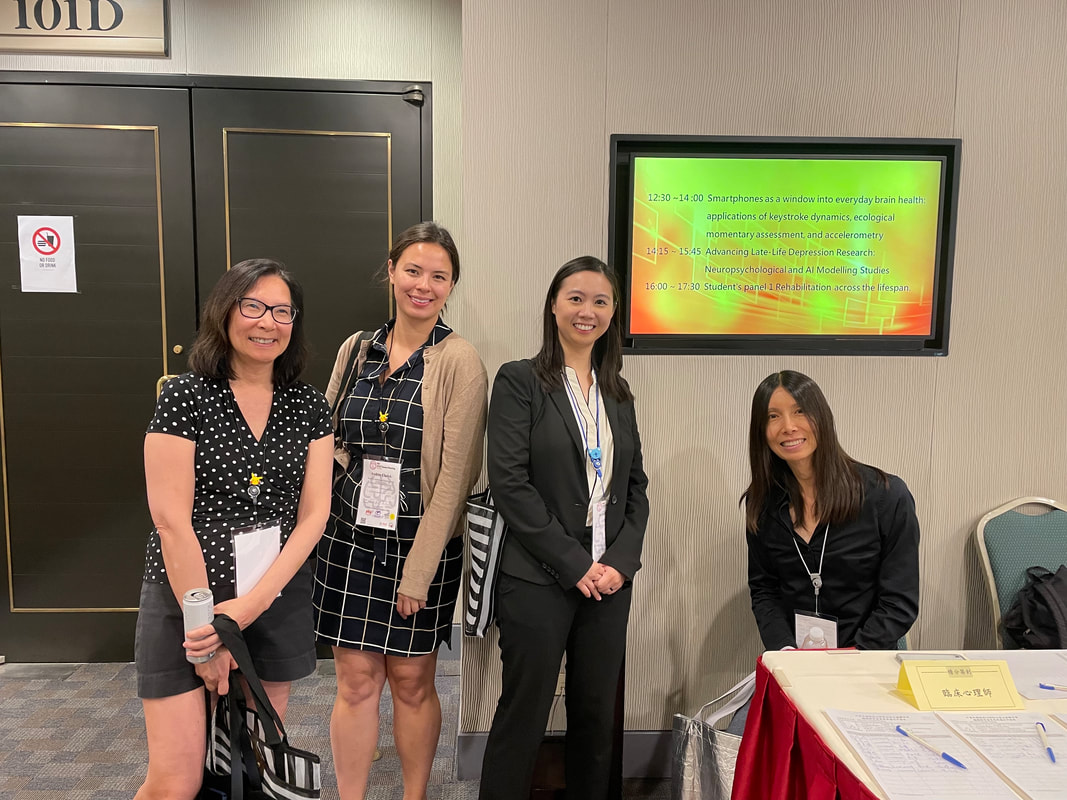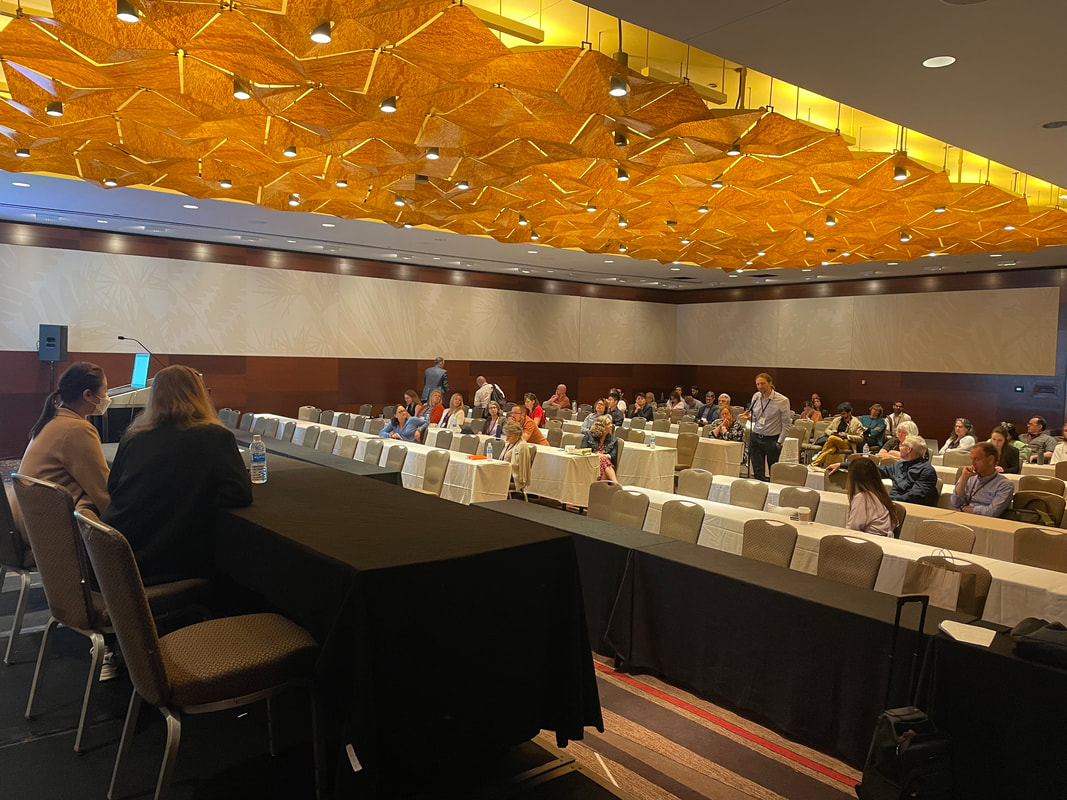BiAffect
Menu
BiAffect meets the world
|
Longtime BiAffect collaborator Dr. Michelle Chen chaired a symposium at the 2023 meeting of the International Neuropsychology Society in Taipei, Taiwan entitled “Smartphones as a window into everyday brain health: applications of keystroke dynamics, ecological momentary assessment, and accelerometry” featuring BiAffect Principal Investigator Dr. Alex Leow as discussant alongside fellow presenters Dr. Tammy Chung and Andrea Cladek.
0 Comments
BiAffect Principal Investigator Dr. Alex Leow chaired a symposium at the 25th Annual Conference of the International Society for Bipolar Disorders in Chicago, IL on “Digital Phenotyping to Support Wellness in People With Bipolar Disorder” featuring fellow presenters Drs. Maria Faurholt-Jepsen and Debbie Huang.
BiAffect team member Claudia Vesel has been awarded a travel grant to present her research on "Diurnal Patterns as Evidenced by over Eleven Million Smartphone Keystrokes During Daily Usage" at the 2019 NNDC Annual Conference, to be held September 24-25 in Ann Arbor, MI.
On the 30th birthday of the World Wide Web, BiAffect's Dr. Alex Leow speaks at Chicago AI Days about the use of artificial intelligence in measuring mood.
BiAffect chosen by the NIH to present at the 2018 MD2K mHealthHUB Technology Showcase on June 4, 2018. Drs. Ajilore and Leow are excited to demonstrate BiAffect as an open science research tool to improve the reliability and validity of passive sensing using keyboard metadata.
|
|


